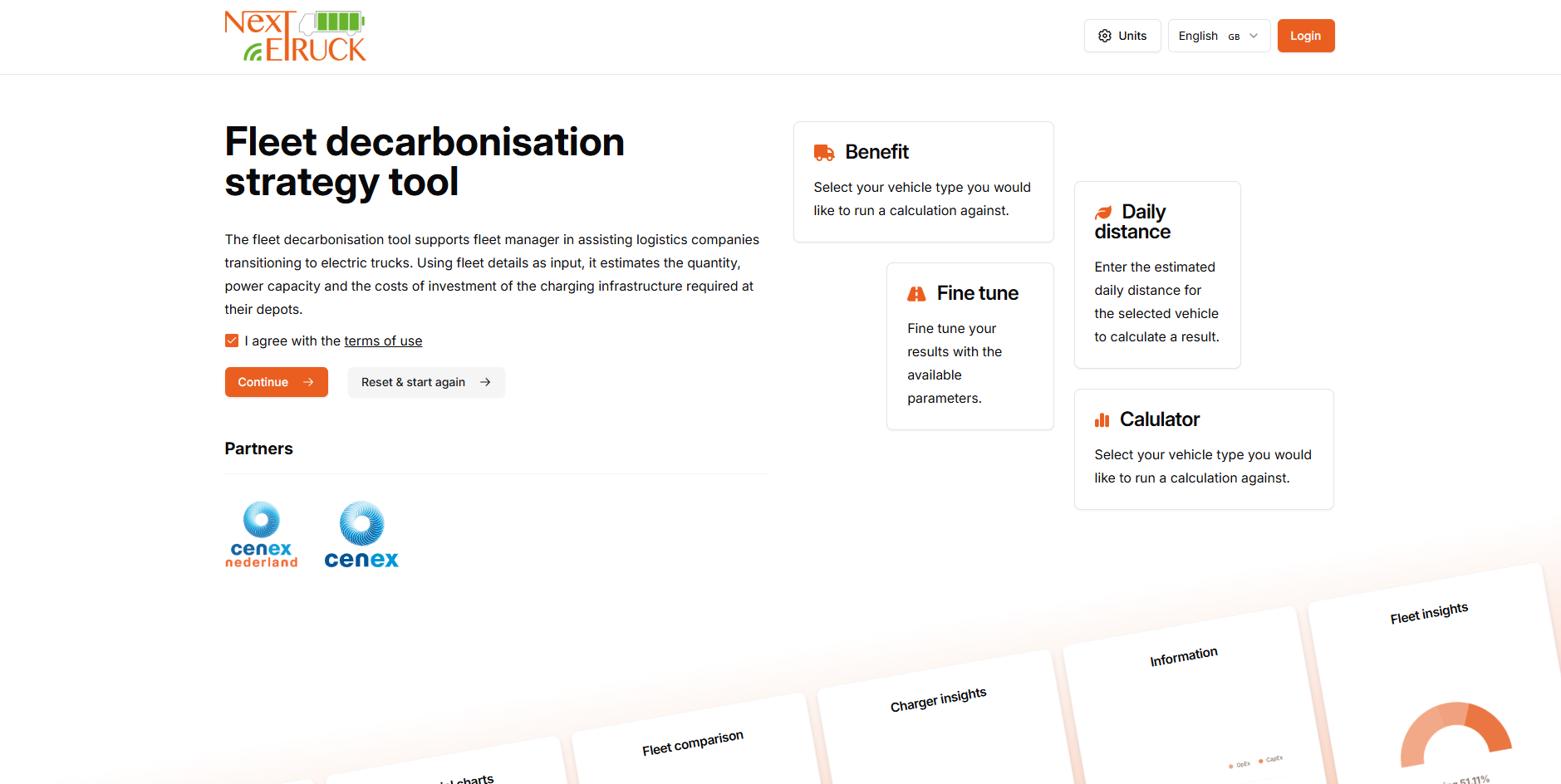[av_section min_height=” min_height_pc=’25’ min_height_px=’500px’ padding=’default’ margin=” custom_margin=’0px’ color=’main_color’ background=’bg_color’ custom_bg=” background_gradient_color1=” background_gradient_color2=” background_gradient_direction=’vertical’ src=” attach=’scroll’ position=’top left’ repeat=’no-repeat’ video=” video_ratio=’16:9′ video_mobile_disabled=” overlay_enable=” overlay_opacity=’0.5′ overlay_color=” overlay_pattern=” overlay_custom_pattern=” shadow=’no-border-styling’ bottom_border=’no-border-styling’ bottom_border_diagonal_color=’#333333′ bottom_border_diagonal_direction=’scroll’ bottom_border_style=’scroll’ scroll_down=” custom_arrow_bg=” av-desktop-hide=” av-medium-hide=” av-small-hide=” av-mini-hide=” id=” custom_class=” aria_label=” av_element_hidden_in_editor=’0′ av_uid=’av-4t4wvs’]
[av_one_half first min_height=” vertical_alignment=” space=” row_boxshadow=” row_boxshadow_color=” row_boxshadow_width=’10’ custom_margin=” margin=’0px’ mobile_breaking=” border=” border_color=” radius=’0px’ padding=’0px’ column_boxshadow=” column_boxshadow_color=” column_boxshadow_width=’10’ background=’bg_color’ background_color=” background_gradient_color1=” background_gradient_color2=” background_gradient_direction=’vertical’ src=” background_position=’top left’ background_repeat=’no-repeat’ highlight=” highlight_size=” animation=” link=” linktarget=” link_hover=” title_attr=” alt_attr=” mobile_display=” id=” custom_class=” aria_label=” av_uid=’av-7rcuak’]
[av_heading heading=’Shared Mobility Transition Guidance Tools & Case Studies’ tag=’h3′ style=” subheading_active=” show_icon=” icon=’ue800′ font=’entypo-fontello’ size=” av-medium-font-size-title=” av-small-font-size-title=” av-mini-font-size-title=” subheading_size=” av-medium-font-size=” av-small-font-size=” av-mini-font-size=” icon_size=” av-medium-font-size-1=” av-small-font-size-1=” av-mini-font-size-1=” color=” custom_font=” icon_color=” margin=” margin_sync=’true’ padding=’10’ icon_padding=’10’ link=” link_target=” id=” custom_class=” template_class=” av_uid=’av-2t6gpk’ sc_version=’1.0′ admin_preview_bg=”][/av_heading]
[av_hr class=’custom’ icon_select=’no’ icon=’ue808′ font=’entypo-fontello’ position=’left’ shadow=’no-shadow’ height=’50’ custom_border=’av-border-thin’ custom_width=’50px’ custom_margin_top=’30px’ custom_margin_bottom=’30px’ custom_border_color=’#0a0a0a’ custom_icon_color=” id=” custom_class=” av_uid=’av-3jog7w’ admin_preview_bg=”]
[av_textblock size=” av-medium-font-size=” av-small-font-size=” av-mini-font-size=” font_color=” color=” id=” custom_class=” template_class=” av_uid=’av-2zz03g’ sc_version=’1.0′ admin_preview_bg=”]
With the goal of decarbonising their transport, many cities in Europe have introduced or are planning to introduce zero-emission shared mobility services. These new shared mobility services often act as disruptors of the status quo and require a systemic change to the interaction between city transport planners, mobility operators and citizens. European city authorities seek new and innovative ways of integrating these shared services with existing public transport modes, payment, route planning and booking systems.
The SuSMo project (Sustainable Shared Mobility) works with city partners from Stockholm, Bologna and Sofia and zero-emission mobility experts to develop learning materials that can change the way we implement shared mobility systems across Europe. The learning materials consist of guidelines and tools for successful implementation, monitoring and evaluation of shared mobility, as well as case studies from the SuSMo partner cities capturing their experiences and lessons learned.
The SuSMo guidelines and tools
The project team has defined and studied four themes essential in establishing sustainable shared mobility. The research outcomes are presented in the below reports that aim to serve as learning material for city authorities that want to introduce, monitor, and/or evaluate shared mobility.
- Policy, regulation and procurement: What steps does a city need to take to introduce sustainable shared mobility?
[av_button label=’Download’ icon_select=’yes’ icon=’ue82d’ font=’entypo-fontello’ link=’manually,https://cenexgroup.nl/download/4883/’ link_target=’_blank’ size=’small’ position=’left’ label_display=” title_attr=” color_options=” color=’theme-color’ custom_bg=’#444444′ custom_font=’#ffffff’ btn_color_bg=’theme-color’ btn_custom_bg=’#444444′ btn_color_bg_hover=’theme-color-highlight’ btn_custom_bg_hover=’#444444′ btn_color_font=’theme-color’ btn_custom_font=’#ffffff’ id=” custom_class=” template_class=” av_uid=’av-1gew4h’ sc_version=’1.0′ admin_preview_bg=”] - Private sector engagement: Designing a shared mobility scheme that works for all. What are the key factors for successful public-private partnerships in introducing shared mobility?
[av_button label=’Download’ icon_select=’yes’ icon=’ue82d’ font=’entypo-fontello’ link=’manually,https://cenexgroup.nl/download/4883/‘ link_target=’_blank’ size=’small’ position=’left’ label_display=” title_attr=” color_options=” color=’theme-color’ custom_bg=’#444444′ custom_font=’#ffffff’ btn_color_bg=’theme-color’ btn_custom_bg=’#444444′ btn_color_bg_hover=’theme-color-highlight’ btn_custom_bg_hover=’#444444′ btn_color_font=’theme-color’ btn_custom_font=’#ffffff’ id=” custom_class=” template_class=” av_uid=’av-d71869′ sc_version=’1.0′ admin_preview_bg=”] - Behavioural change: How does the behaviour of stakeholders influence the introduction of shared mobility and what needs to change for successful implementation?
[av_button label=’Download’ icon_select=’yes’ icon=’ue82d’ font=’entypo-fontello’ link=’manually,https://cenexgroup.nl/download/4891/‘ link_target=’_blank’ size=’small’ position=’left’ label_display=” title_attr=” color_options=” color=’theme-color’ custom_bg=’#444444′ custom_font=’#ffffff’ btn_color_bg=’theme-color’ btn_custom_bg=’#444444′ btn_color_bg_hover=’theme-color-highlight’ btn_custom_bg_hover=’#444444′ btn_color_font=’theme-color’ btn_custom_font=’#ffffff’ id=” custom_class=” template_class=” av_uid=’av-bjp60x’ sc_version=’1.0′ admin_preview_bg=”] - Impact evaluation: How to estimate the impact of shared mobility in a city on CO2 emissions using a software model? The latest version of the model can be found here, and the user guide manual here.
[av_button label=’Download’ icon_select=’yes’ icon=’ue82d’ font=’entypo-fontello’ link=’manually,https://cenexgroup.nl/download/4895/‘ link_target=’_blank’ size=’small’ position=’left’ label_display=” title_attr=” color_options=” color=’theme-color’ custom_bg=’#444444′ custom_font=’#ffffff’ btn_color_bg=’theme-color’ btn_custom_bg=’#444444′ btn_color_bg_hover=’theme-color-highlight’ btn_custom_bg_hover=’#444444′ btn_color_font=’theme-color’ btn_custom_font=’#ffffff’ id=” custom_class=” template_class=” av_uid=’av-bjp60x’ sc_version=’1.0′ admin_preview_bg=”]
SuSMo Case Studies
The project team worked together with the SUSMO partner cities, Bologna, Sofia and Stockholm, capturing their experiences from introducing different shared mobility modes and schemes. Lessons learned for these case studies can be found in the summarized reports.
Stockholm – Car Sharing in housing development
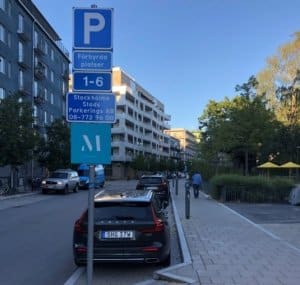
The introduction of special parking permits in Stockholm led to the introduction of shared car schemes. This study provides valuable recommendations for the introduction of these schemes, focussing on behavioural change, policy, regulation, procurement and private sector engagement.
[av_button label=’Download case study’ icon_select=’yes’ icon=’ue82d’ font=’entypo-fontello’ link=’manually,https://cenexgroup.nl/download/4877/’ link_target=’_blank’ size=’small’ position=’left’ label_display=” title_attr=” color_options=” color=’theme-color’ custom_bg=’#444444′ custom_font=’#ffffff’ btn_color_bg=’theme-color’ btn_custom_bg=’#444444′ btn_color_bg_hover=’theme-color-highlight’ btn_custom_bg_hover=’#444444′ btn_color_font=’theme-color’ btn_custom_font=’#ffffff’ id=” custom_class=” template_class=” av_uid=’av-72a4ht’ sc_version=’1.0′ admin_preview_bg=”]
Sofia – Technology and Policy Roadmaps Integration in SUMP
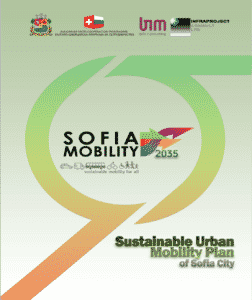
Technology and policy roadmaps inform cities of upcoming technology developments, and the likely policy and strategy decisions cities need to take in order to accelerate the low carbon shared mobility agenda. In this study, these roadmaps are used to identify the strengths and weaknesses in the SUMP (Sustainable Urban Mobility Plan) of Sofia.
[av_button label=’Download case study’ icon_select=’yes’ icon=’ue82d’ font=’entypo-fontello’ link=’manually,https://cenexgroup.nl/download/4873/‘ link_target=’_blank’ size=’small’ position=’left’ label_display=” title_attr=” color_options=” color=’theme-color’ custom_bg=’#444444′ custom_font=’#ffffff’ btn_color_bg=’theme-color’ btn_custom_bg=’#444444′ btn_color_bg_hover=’theme-color-highlight’ btn_custom_bg_hover=’#444444′ btn_color_font=’theme-color’ btn_custom_font=’#ffffff’ id=” custom_class=” template_class=” av_uid=’av-l1zox’ sc_version=’1.0′ admin_preview_bg=”]
Sofia – Mobility Hub
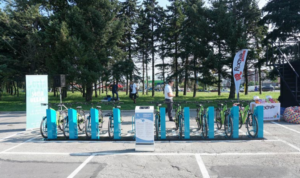 An innovative public-private partnership in Sofia led to the introduction of mobility hubs. This document shows how this came to be and how it impacted Sofia.
An innovative public-private partnership in Sofia led to the introduction of mobility hubs. This document shows how this came to be and how it impacted Sofia.
[av_button label=’Download case study’ icon_select=’yes’ icon=’ue82d’ font=’entypo-fontello’ link=’manually,https://cenexgroup.nl/download/4869/’ link_target=’_blank’ size=’small’ position=’left’ label_display=” title_attr=” color_options=” color=’theme-color’ custom_bg=’#444444′ custom_font=’#ffffff’ btn_color_bg=’theme-color’ btn_custom_bg=’#444444′ btn_color_bg_hover=’theme-color-highlight’ btn_custom_bg_hover=’#444444′ btn_color_font=’theme-color’ btn_custom_font=’#ffffff’ id=” custom_class=” template_class=” av_uid=’av-4n8jup’ sc_version=’1.0′ admin_preview_bg=”]
Bologna – Bike Sharing
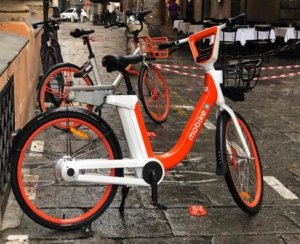 The city of Bologna introduced a shared bike service in 2018. For the procurement of this service, they used a tendering process called competitive dialogue. This document shows how this was done, and provides a framework for establishing bike-sharing schemes using competitive dialogue.
The city of Bologna introduced a shared bike service in 2018. For the procurement of this service, they used a tendering process called competitive dialogue. This document shows how this was done, and provides a framework for establishing bike-sharing schemes using competitive dialogue.
[av_button label=’Download case study’ icon_select=’yes’ icon=’ue82d’ font=’entypo-fontello’ link=’manually,https://cenexgroup.nl/download/4865/‘ link_target=’_blank’ size=’small’ position=’left’ label_display=” title_attr=” color_options=” color=’theme-color’ custom_bg=’#444444′ custom_font=’#ffffff’ btn_color_bg=’theme-color’ btn_custom_bg=’#444444′ btn_color_bg_hover=’theme-color-highlight’ btn_custom_bg_hover=’#444444′ btn_color_font=’theme-color’ btn_custom_font=’#ffffff’ id=” custom_class=” template_class=” av_uid=’av-2693s1′ sc_version=’1.0′ admin_preview_bg=”]
[/av_textblock]
[/av_one_half][av_one_half min_height=” vertical_alignment=” space=” row_boxshadow=” row_boxshadow_color=” row_boxshadow_width=’10’ custom_margin=” margin=’0px’ mobile_breaking=” border=” border_color=” radius=’0px’ padding=’0px’ column_boxshadow=” column_boxshadow_color=” column_boxshadow_width=’10’ background=’bg_color’ background_color=” background_gradient_color1=” background_gradient_color2=” background_gradient_direction=’vertical’ src=” background_position=’top left’ background_repeat=’no-repeat’ highlight=” highlight_size=” animation=” link=” linktarget=” link_hover=” title_attr=” alt_attr=” mobile_display=” id=” custom_class=” aria_label=” av_uid=’av-ufxp8′]
[av_image src=’https://cenexgroup.nl/wp-content/uploads/2021/04/Climate-KIC_Logo_NEW2021-e1624897861364.png’ attachment=’4829′ attachment_size=’full’ copyright=’icon-reveal’ caption=” styling=” align=’center’ font_size=” overlay_opacity=’0.4′ overlay_color=’#000000′ overlay_text_color=’#ffffff’ animation=’no-animation’ hover=” appearance=” link=” target=” title_attr=” alt_attr=” lazy_loading=’disabled’ id=” custom_class=” template_class=” av_element_hidden_in_editor=’0′ av_uid=’av-kclslttx’ sc_version=’1.0′ admin_preview_bg=”][/av_image]
[av_image src=’https://cenexgroup.nl/wp-content/uploads/2021/04/SuSMo-Logo-Final-main-01-300×271.png’ attachment=’4695′ attachment_size=’medium’ copyright=’icon-reveal’ caption=” styling=” align=’center’ font_size=” overlay_opacity=’0.4′ overlay_color=’#000000′ overlay_text_color=’#ffffff’ animation=’no-animation’ hover=” appearance=” link=” target=” title_attr=” alt_attr=” lazy_loading=’disabled’ id=” custom_class=” template_class=” av_element_hidden_in_editor=’0′ av_uid=’av-kqgkjnc0′ sc_version=’1.0′ admin_preview_bg=”][/av_image]
[av_heading heading=’Project partners’ tag=’h3′ style=” subheading_active=” show_icon=” icon=’ue800′ font=’entypo-fontello’ size=” av-medium-font-size-title=” av-small-font-size-title=” av-mini-font-size-title=” subheading_size=” av-medium-font-size=” av-small-font-size=” av-mini-font-size=” icon_size=” av-medium-font-size-1=” av-small-font-size-1=” av-mini-font-size-1=” color=” custom_font=” icon_color=” margin=” margin_sync=’true’ padding=’10’ icon_padding=’10’ link=” link_target=” id=” custom_class=” template_class=” av_uid=’av-kqgkklnp’ sc_version=’1.0′ admin_preview_bg=”][/av_heading]
[av_textblock size=” av-medium-font-size=” av-small-font-size=” av-mini-font-size=” font_color=” color=” id=” custom_class=” template_class=” av_uid=’av-kqgklndj’ sc_version=’1.0′ admin_preview_bg=”]
- Cenex NL (Coordinator)
- AESS
- CleanTech Bulgaria
- Trivector
[/av_textblock]
[av_hr class=’invisible’ icon_select=’yes’ icon=’ue808′ font=’entypo-fontello’ position=’center’ shadow=’no-shadow’ height=’10’ custom_border=’av-border-thin’ custom_width=’50px’ custom_margin_top=’30px’ custom_margin_bottom=’30px’ custom_border_color=” custom_icon_color=” id=” custom_class=” av_uid=’av-k7adv482′ admin_preview_bg=”]
[av_heading heading=’Contributors’ tag=’h3′ style=” subheading_active=” show_icon=” icon=’ue800′ font=’entypo-fontello’ size=” av-medium-font-size-title=” av-small-font-size-title=” av-mini-font-size-title=” subheading_size=” av-medium-font-size=” av-small-font-size=” av-mini-font-size=” icon_size=” av-medium-font-size-1=” av-small-font-size-1=” av-mini-font-size-1=” color=” custom_font=” icon_color=” margin=” margin_sync=’true’ padding=’10’ icon_padding=’10’ link=” link_target=” id=” custom_class=” template_class=” av_uid=’av-kqgkm09r’ sc_version=’1.0′ admin_preview_bg=”][/av_heading]
[av_textblock size=” av-medium-font-size=” av-small-font-size=” av-mini-font-size=” font_color=” color=” id=” custom_class=” template_class=” av_uid=’av-kqgkm581′ sc_version=’1.0′ admin_preview_bg=”]
Cenex, TU Delft, CKIC-project MOTION
[/av_textblock]
[av_hr class=’invisible’ icon_select=’yes’ icon=’ue808′ font=’entypo-fontello’ position=’center’ shadow=’no-shadow’ height=’40’ custom_border=’av-border-thin’ custom_width=’50px’ custom_margin_top=’30px’ custom_margin_bottom=’30px’ custom_border_color=” custom_icon_color=” id=” custom_class=” template_class=” av_uid=’av-k7adv482′ sc_version=’1.0′ admin_preview_bg=”]
[av_codeblock wrapper_element=” wrapper_element_attributes=” codeblock_type=” alb_description=” id=” custom_class=” template_class=” av_uid=’av-kcoqewzu’ sc_version=’1.0′]
[/av_codeblock]
[/av_one_half][/av_section][av_social_share title=’Share this entry’ buttons=’custom’ share_facebook=’aviaTBshare_facebook’ share_twitter=’aviaTBshare_twitter’ share_whatsapp=’aviaTBshare_whatsapp’ share_linkedin=’aviaTBshare_linkedin’ share_mail=’aviaTBshare_mail’ yelp_link=’https://www.yelp.com’ style=” alb_description=” id=” custom_class=” av_uid=’av-kcoqdi2g’ admin_preview_bg=”]



